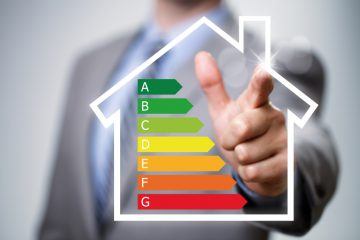More support needed for landlords to boost energy efficiency
Ahead of the Budget on 3rd March, the National Residential Landlords Association (NRLA) is calling for tax reform to support energy improvements for rented homes.
This comes as MPs on the Environmental Audit Committee concluded last week that the delivery of the Government’s flagship Green Homes Grant scheme has been “poor”. It noted that the eligibility criteria for the scheme: “prevented many from being able to access vouchers for the measures they required.”
The NRLA highlights that 32% of properties in the private rental sector (PRS) were built before 1919, making it a huge challenge to improve energy efficiency compared with any other housing sector.
The Government has committed to upgrade as many PRS homes as possible to Energy Performance Certificate (EPC) Band C or better by 2030. Currently, 62% have an EPC rating of D or lower.
The NRLA is calling on the Chancellor to help achieve this by ensuring that the tax system actively supports landlords who want to make energy improvements. Ministers have proposed to increase the amount up to which landlords have to pay to make a property more energy efficient from £3,500 to £10,000.
According to Government data, the average gross rental income for landlords is £15,000 per year (before tax and other deductions). The NRLA is concerned that the impact of this change is likely to decimate the income of some landlords. It proposes that energy efficiency measures carried out by a landlord should be offset against tax at purchase, as repair and maintenance, rather than as an improvement at sale against Capital Gains Tax. This would address anomalies – for example, whilst replacing a broken boiler is tax-deductible, replacing an energy-inefficient model for a more efficient boiler or heating system is not.
Ben Beadle, Chief Executive of the NRLA, comments: “The rental market stands ready to play its part in securing a green recovery. However, to achieve this we need a tax system that properly supports and encourages the work needed to ensure rented homes as are energy efficient as possible on a long-term basis. The Green Homes Grant scheme proves that short term measures do not work.
“The Chancellor needs to use tax more positively to encourage investment in energy improvements. This would play a crucial role in cutting bills for renters, reducing carbon emissions, and improving the nation’s housing stock.”

